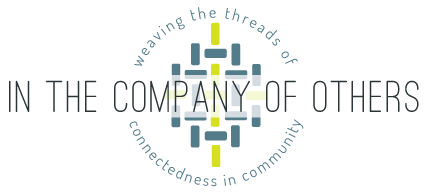If you ask me, I would say that people are mostly good – wherever we end up. Shel and I have had the honour of sharing space with so many seekers in our work, kindred spirits trying to figure things out- seemingly clear and at the same time mucky, messy, human. During our trip to the Gentle Teaching International 2018 Conference in the Netherlands, we saw and heard moving stories from around the world and we learned so much. Our hearts were filled, broken or moved time and time again.
Across the globe, the lives of people who experience disability are as varied as anyone’s. If there is anything that our wonderful teachers in the Culture of Gentleness community have taught us, it is that if we are going to walk the talk- we must constantly remind ourselves that people are where they are. Good people. Kind and compassionate people. People who are dreaming more deeply and boldly for the people that they support often in extremely difficult circumstances.
How then to leave judgment behind when hearing stories of institutions and villages where many people are congregated, othered and segregated? Does love show up in places where people are locked away?
We listened.
We listened deeply for ideas, for inspiration, and for hope. Hope showed up in lots of little spaces at the conference. Hope felt far away in many others.
People in Denmark are grappling with a system that prioritizes safety (in mostly institutional settings), yet has legislated “freedom” for people. The people who were talking about this were truly struggling. I love and admire people who are struggling publicly and seeking support from their “around the world” colleagues. From my perspective, it is brave, true and deep work. Imagine standing at the front of a room filled with people from around the world and saying- “I don’t know what to do…”
So we meet people where they are.
Conversations in that room were rich and puzzling for all of us. We could see from the point of view of the system that is trying to do the right thing by unlocking refrigerators, doors, and gates in the institution. The system was looking for opportunities to create change in the lives of those they cared for. We heard from the people who were doing the work and the struggles they had implementing a law without being given the tools to implement it thoughtfully, safely and responsibly.
One woman said that she spent most of her time watching out for people who had wandered through the unlocked doors, onto the grounds and into imminent danger of being killed on the road. She explained that the ratio of workers and people served was 8 to 1 which made it nearly impossible to do anything but respond urgently as people wandered away.
So what can we do to support each other? How to foster thinking about the balance between safety and freedom of choice? How might we help people ask good questions to raise their concerns and support people to make choices that are informed? To help families and others understand that this is what we are doing and ask what assistance might they offer while we find our way?
We meet them where they are at! We build relationships. Ask Questions. Dive deeply into the work of everyday support to those who now have a choice and need support to make good choices. Together we can co-create space to learn and grow from making a different choice than we might make. We learn from the choices made to inform the next choice and the next one.
Support does not stop with the people we are paid to support. It branches out to those we work with and those who make the “rules”. The questions, the conversations, and the learning happen at all levels. But without the questions and reflection, we continue down the same road of “safety” over what a better life might look like for everyone.
It seems simple, but it is the hardest part of the work. The lives of people who experience disability may look better from where we stand in our own cultures, but without conversation and questions and the sharing of ideas, we can’t make a difference in each other’s lives.
We have to be willing to accept each other right where we are, hear the struggles, listen with our hearts, ask the deeper question, and do the next right thing. It looks different in Denmark than it does in Iceland or British Columbia or Kalamazoo. And yet, what we do know, is that people are doing the best that they can in any given circumstance and that our role is to support each other as we learn and grow in the work that we all care about deeply.
“Be like mushrooms. Spread your mycelial threads underground, and connect them out of sight. Extrude them, extend them, clamping one to another in a pattern with no center to destroy, no head to cut off.
Then exude. Sweat out the revolutionary fervor that dissolves old structures, that breaks toxins apart. Extend your reach, link root to root. Trees feed their young through subterranean fungal webs. Be a conduit. Take in. Share. Be ephemeral, mostly invisible. Pop up everywhere, overnight, and then disappear.
But also be like trees. Grow slowly. Push up from below, when you’re ready. Draw from deep sources, but also take in light. Build structure. Flex and strengthen your fiber so when the storms hit, you can hold your ground. Feed on light, on air and water. Grow. Grow so tall that you can be seen from everywhere, a brave silhouette that shapes a new skyline.
And don’t grow alone.”
Starhawk
City of Refuge
What question have you been pondering lately? Let’s start a conversation!
